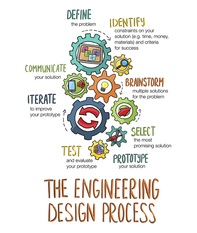English Language Support
Unit 1: Plastic Solutions
Accommodations |
Unidad 1: Soluciones de plástico |
Unidade 1: Soluções Plásticas |
Interactive Science NotebookHere is a link to the Table of Contents (ToC) for U1: Plastic Solutions.
If you are ABSENT, look at the TOC to see if pages have been added. Right-hand pages can be photocopied using the class photocopier. |
Cuaderno interactivo de cienciasAquí hay un enlace a la Tabla de contenidos (ToC) para U1: Soluciones plásticas.
Si está AUSENTE, mire la tabla de contenido para ver si se han agregado páginas. Las páginas derechas se pueden fotocopiar utilizando la fotocopiadora de la clase. |
Caderno de Ciências InterativasAqui está um link para o Índice (ToC) para U1: Plastic Solutions.
Se você estiver ausente, examine o índice para ver se as páginas foram adicionadas. As páginas do lado direito podem ser fotocopiadas usando a fotocopiadora da classe. |
|
Task
|
Tarea |
Tarefa |
|
You are an inventor. You are making a device to stop plastic pollution.
|
Eres un inventor. Está haciendo un dispositivo para detener la contaminación plástica.
|
Você é um inventor. Você está fazendo um dispositivo para parar a poluição de plástico.
|
|
Big Aha!
|
Gran idea |
Grande ideia |
|
How can we engineer for good to help solve the plastic pollution problem?
|
¿Cómo podemos ingeniar para siempre para ayudar a resolver el problema de la contaminación por plástico?
|
Como podemos engenhar para ajudar a resolver o problema da poluição plástica?
|
Focus Questions |
Preguntas de enfoque |
Questões de Foco |
|
|
|
Enduring Understanding |
Entendimiento duradero |
Entendimento duradouro |
|
|
|
Vocabulary
English Language Learners you only need to know words with the asterisk (*). Here is the ELL Support for Spanish and Portuguese.
|
Biomagnification
Benefit* Biodegradable (Biodegrade)* Bond BPA Chemical (Chemist, Chemistry)* Climate change* Compostable (Compost)* Compounds Concentrate Contaminant (Contaminate) Debris Downcycle Decompose* |
Ecosystem*
Elements Fossil fuels* Greenhouse gas Gyres Hormones Infographic* Insulation (Insulate) Immune system Impact* Landfill* Lifecycle* Microbeads Microplastics |
Monomer
Nonrenewable* Sustainable* Synthetic* Toxic (toxins)* Package (Packaging)* Plastic* Pollution* Polymer Properties* Recycle* Renewable* Upcycle Zero waste* |
Science Root Words |
Engineering Vocabulary |
Vocabulario de ingeniería |
Vocabulário de engenharia |
|
Highlight these Science Word Roots:
|
Problem
Solution Criteria Design Constraints Brainstorm Develop Test Iterate Innovate Feedback Self-evaluate |
Problema
Solución Criterio Diseño Restricciones Idea genial Desarrollar Prueba Iterar Innovar Realimentación Autoevaluar |
Problema
Solução Critério desenhar Restrições chuva de ideias desenvolve Teste Iterar Inovar Comentários Autoavaliação |


